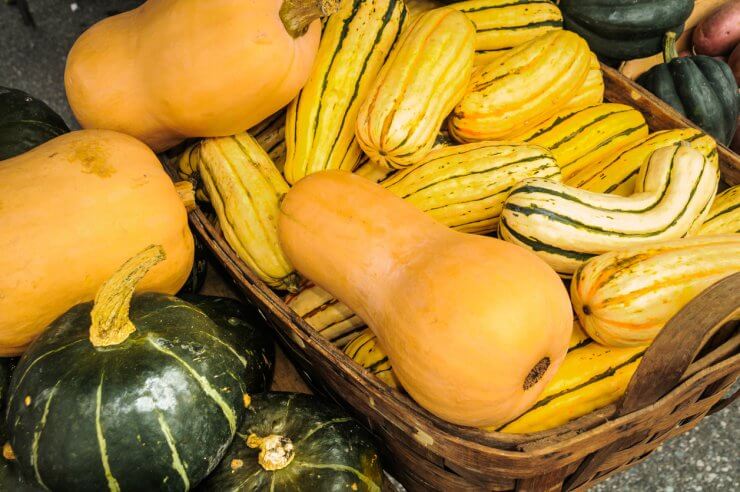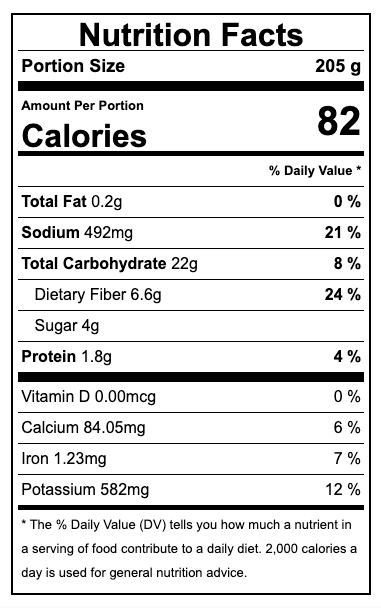
Basket of Butternut, Acorn, and Delicata winter squash

Basket of Butternut, Acorn, and Delicata winter squash
Winter squash are low in calories and high in beneficial vitamins and minerals, fiber, and antioxidants. You may not eat a lot of winter squash at one sitting, but they can have a positive cumulative effect on your health.
Here is the nutrition information for one cup of baked, salted winter squash (note that the sodium content comes from the salt, not the squash):

Source: https://www.nutritionvalue.org/Winter Squash%2C_raw_nutritional_value.html
Here are some of the compounds in winter squash:
Fiber: Squash is high in fiber, which is essential for a healthy diet.
Folate: This is a water-soluble B vitamin, and can play a positive role in fighting cancer, congenital heart defects, cardiovascular disease and stroke, and depression. It’s also important for normal tissue growth.
Iron: Iron helps transport oxygen in your red blood cells. One serving of winter squash provides 7% of the RDA.
Manganese: This is an essential trace element; one serving of winter squash provides 15% of the RDA.
Potassium: Important for heart health, one serving of winter squash provides 12% of the RDA.
Vitamin C: The vitamin C in winter squash is an antioxidant necessary for immune system and skin health. One cup of winter squash provides a whopping 34% of the RDA!
Did you know all these nutrition facts about winter squash? Please tell us what you think.



